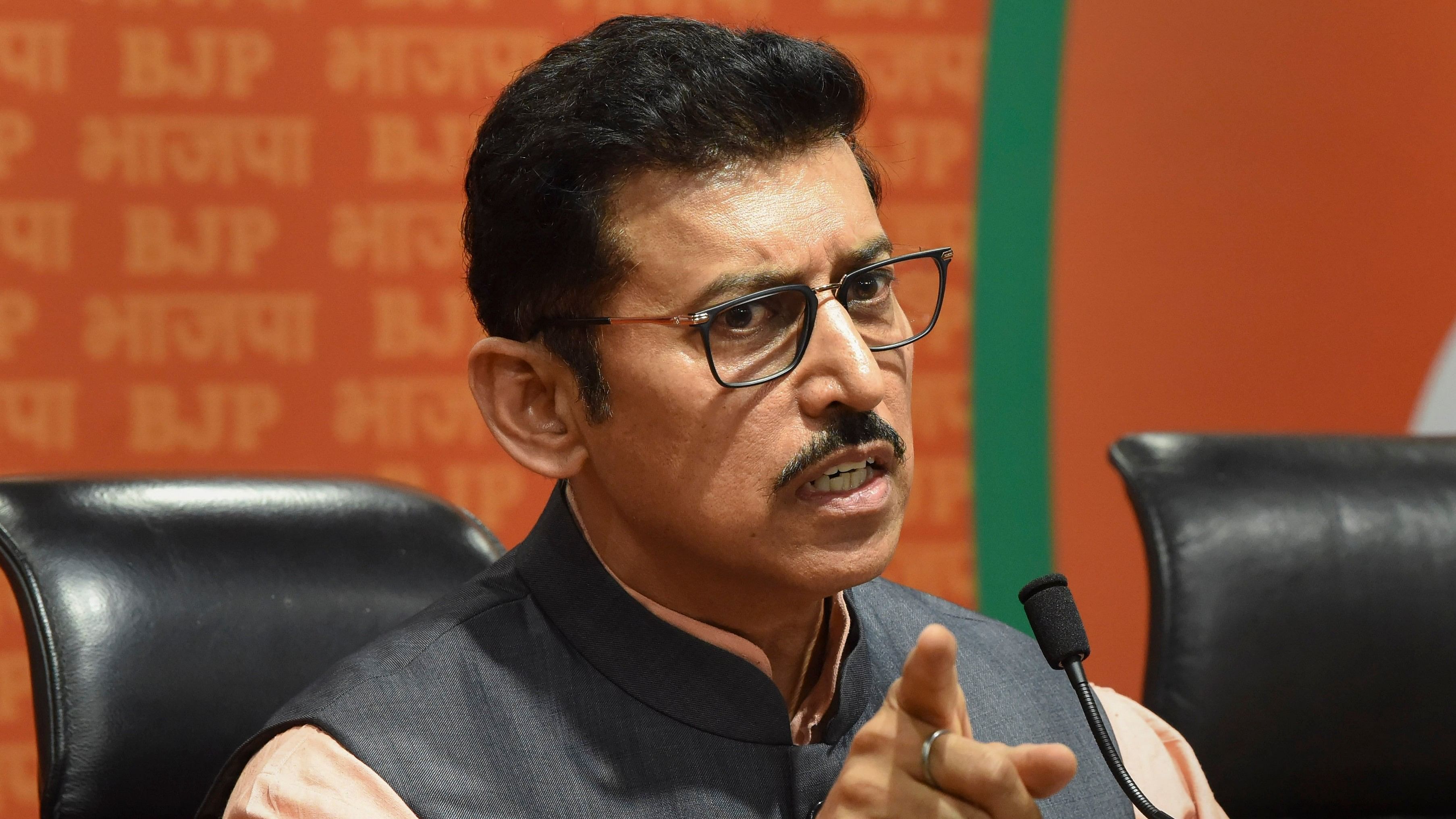
With a 5-year plan to emerge as a $350 billion economy, the desert state of Rajasthan is pulling all stops to draw over Rs 15 lakh crore investment - both domestic and foreign. Part of this script is hosting a three-day business summit christened - ‘Rising Rajasthan’ - Jaipur between December 9 and 11. DH’s Rakhee Roytalukdar caught up the state’s industry and commerce minister, Rajyavardhan Singh Rathore, to gain an insight on how a state grappling with 1.84 million registered unemployed youth (the country’s second highest), plans to get to its dream targets.
Edited excerpts:
Unlike your predecessors, why is your government seeking investment in its very first year of governance?
For generation of jobs and for economic vibrancy in the state. Now within the first year itself we had the general elections, but that did not deter us to push for something that is our priority. Despite the shortage of time, we believe it is imperative that we have such a meet in the first year.
We have already received a huge amount of investment proposals. Now why in the first year? Because we should have the time to translate the MoUs into reality and bring them on ground. When we went to various countries, we realised that brand India is so strong that now when businesses look for an alternative country, they look at India. Within India, Rajasthan provides everything a business would look for. We are not just competing with states within India but even with countries of Asia.
The earlier investment summits both in the Congress and BJP governments saw MoUs being signed. But most remained on paper. MoUs worth over Rs 19 lakh crore have already been signed. Will these new MoUs really take off?
So till the Chief Minister’s UK visit, we had Rs 15 lakh crore, more are now coming in. The stark difference between the previous government-conducted investment summits and ours is that they did it in the fourth year of their term and we are doing it in the first year of our term. That in itself speaks volume.
Secondly we are going global in a major way. Our outreach has been to 23 countries. For 23 countries, we have earmarked one senior IAS officer per country as the first point of contact.
Number three difference is that a lot of non-resident Rajasthanis are there, who have interest in investments in Rajasthan. So we have identified one senior RAS (Rajasthan Administrative Service) officer for each of the states to be responsible as the first point of contact. Within the three-day summit one day is dedicated to Non-resident Rajasthani investors.
Another difference is that we have brought about clarity for investors in the form of 21 new policies. We also have an overarching policy as the Rajasthan Investment Promotion Policy, 2024.
Focusing on the unemployment rate, what is the kind of local employment generation that you are thinking of when you are offering investors’ facilities?
At any point of time, when one manufacturing unit comes in, there are at least 20 or 30 smaller units that come around it that survive because of that one unit. We have a variety of sectors available within Rajasthan, from petrochemical park to textile and apparel hub to logistics to infrastructure, renewable energy to engineering system designing, mines and minerals, stones and gems and jewellery. When huge investments come in, economic vibrancy is created and that caters to direct and indirect employment and entrepreneurship as well.
Unemployment rate is very high in Rajasthan, in fact it is the second highest in India.
We are now in charge and so we are taking immediate steps to push for this investment summit, to create positive policies and to bring in investments and to convert them from files to reality and all of these in turn would impact employment generation within Rajasthan.
Apart from this, we are also focussing on skilling. So with a lot of companies, we are having MoUs for creating skill centres. So our youth would be more empowered by the way of skills to be their priority work-force.
Rajasthan is now bringing in the Rajasthan Aggregation of Private Land Bill, 2024 to boost investor interest. The Bill will allow the government to acquire land from private land owners, develop it and return at least 25% of it to original owners instead of cash.
There is no law to be changed. It is a change in policy through Cabinet decision. We have changed the whole approach from taking land from the farmers by law to seeking land from the farmers. And our policy then has a method of benefiting the person who is willing to share the land.